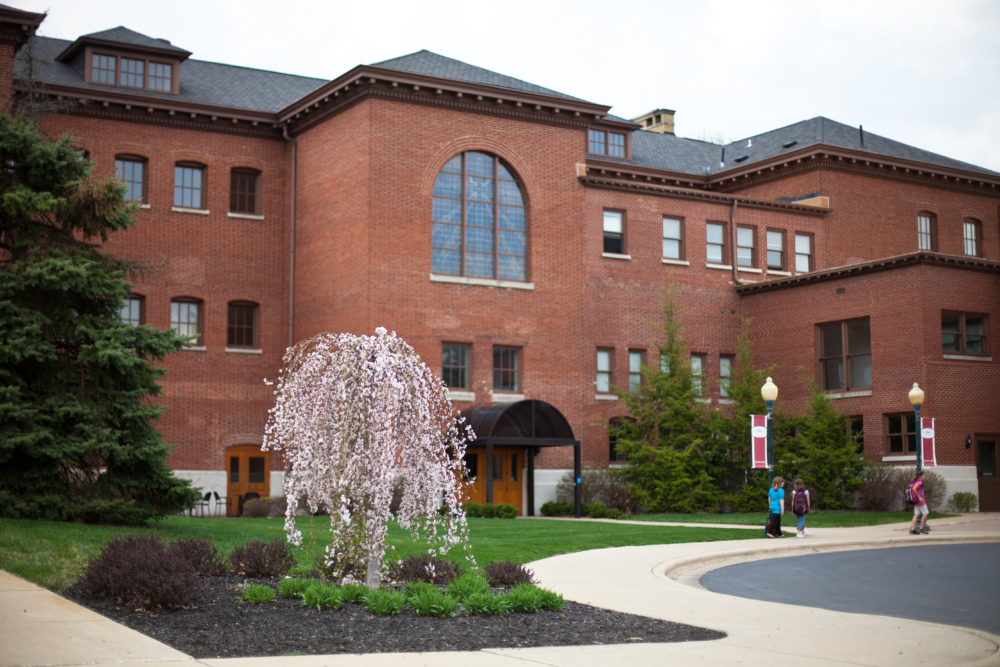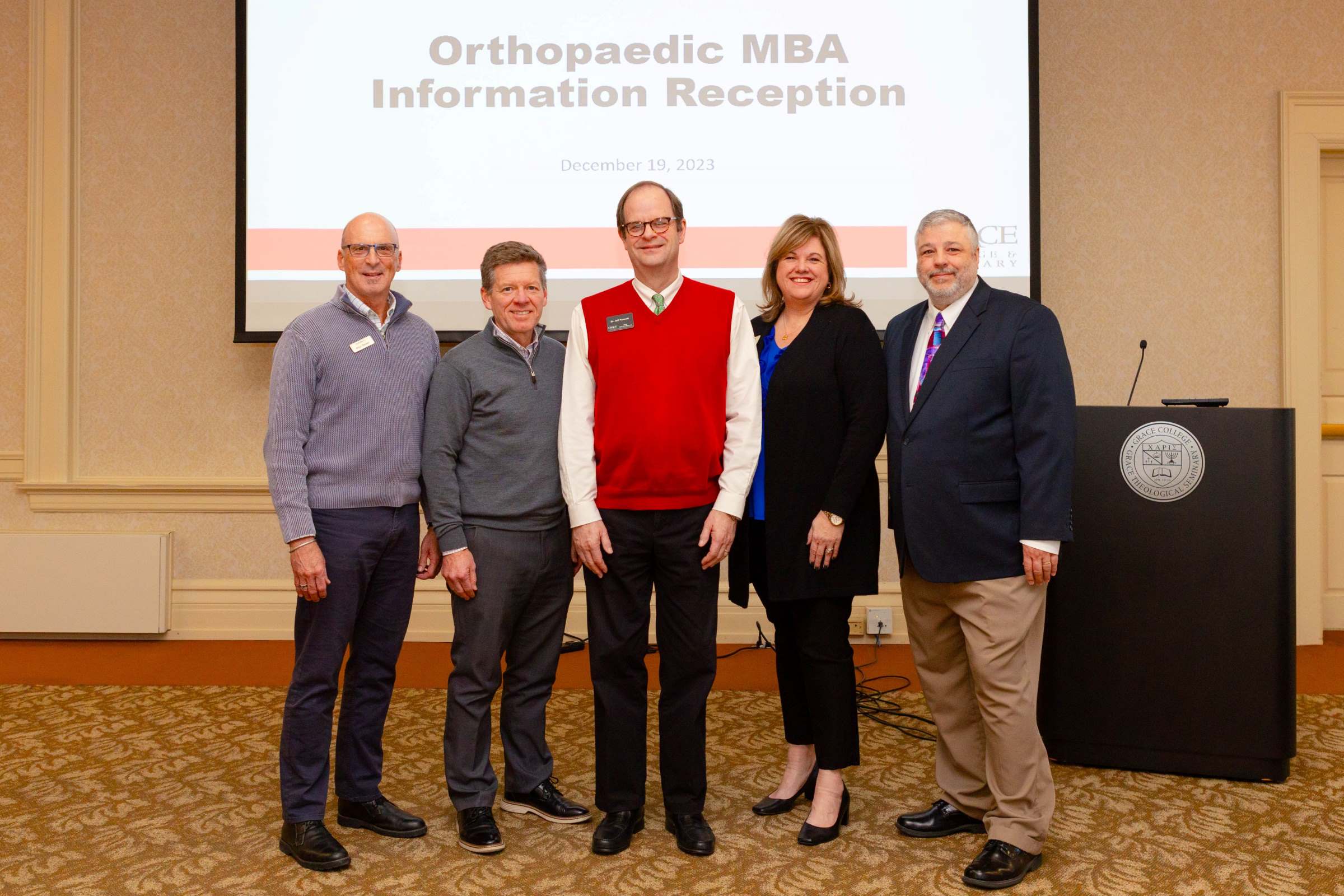December 22, 2020
Master of Nonprofit Management Degree Equips Students for Healthcare Nonprofits
Tagged With Masters Programs NonProfit Management

Are you passionate about health care? Health care providers are one type of nonprofit organization that will never lose its relevance. Quality and affordable health care will always be a societal need, and therefore, society will always need health care leaders that understand the business side of hospitals and health networks. Grace College’s online master of nonprofit management degree is a great step to be equipped for service in healthcare nonprofits.
Healthcare nonprofits make up a large part of the industry. The following sections explore some statistics and organizations within nonprofit health care. Your journey toward becoming a master of nonprofit management starts here. Who knows where it could take you in the future?
What Is a Healthcare Nonprofit?
In the United States, nonprofit organizations play a major role in the financing and delivery of health care services. A common identifying factor is that their governing bodies are composed of leaders from the communities they serve. These organizations are primarily responsible for and accountable to the communities and populations they serve. Nonprofit health care organizations don’t pay federal income taxes or state and local property taxes.
Health care nonprofit organizations make up a considerable portion of the nation’s health care services. The Alliance for Advancing Nonprofit Health Care estimates that the following have nonprofit status:
- All community health centers
- Roughly 60 percent of community hospitals
- Nearly 30 percent of nursing homes
- About 17 percent of home health care agencies
In addition, nonprofit health plans are estimated to serve more than 40 percent of all private health insurance enrollees.
State and Regional Healthcare Nonprofits
The size and scope of health care nonprofits are considerable. This is especially true when discussing hospital ownership, the Kaiser Family Foundation reports. In 2018, 56.5 percent of all hospitals in the United States were nonprofit, with 18.6 percent of hospitals controlled by state or local government and 24.9 percent of hospitals by for-profit owners.
Employment opportunities also demonstrate the impact that nonprofit health care organizations have. In addition to professionals who provide care, there are many professionals at the state and regional levels who work in an administrative capacity, helping nonprofit organizations advance their cause. These professionals can include specialists (such as finance or marketing) or managers who are able to fundraise, advocate for the cause and make other strategic plans to help the nonprofit “do good.”
With a master of nonprofit management program, you will explore the most effective ways to fundraise and advocate in the health care industry.
International Health Care Nonprofits
Here are two examples of international health care nonprofit organizations.
World Health Organization (WHO)
WHO’s goal is to build a better, healthier future for people all over the world. In more than 150 countries, the organization supports countries as they coordinate the efforts of multiple sectors of the government and partners to attain their health objectives and support their national health policies and strategies.
Established in 1948, WHO initially focused on controlling the spread of malaria, tuberculosis and sexually transmitted infections, and it later played a leading role in eradicating smallpox. WHO provides leadership on global health matters, including the health research agenda.
The organization’s current strategy focuses on strategic objectives including a commitment to action on Healthy Ageing in every country (promoting well-being as people grow older), developing age-friendly environments, aligning health systems to the needs of older populations, developing sustainable and equitable systems for providing long-term care and improving measurement, monitoring, and research on Healthy Ageing.
The American Red Cross
The American Red Cross was formed in 1881 as a humanitarian organization. In the United States, there are more than 600 locally supported American Red Cross chapters. More than 500,000 volunteers and approximately 35,000 employees provide assistance to the victims of more than 60,000 disasters each year.
The American Red Cross is part of the International Red Cross and Red Crescent Movement, which is supported by more than 97 million volunteers. There are 186 Red Cross or Red Crescent national societies. One in 25 people around the world is helped by the Red Cross and Red Crescent each year.
In addition to international services, the American Red Cross works in the following service areas.
- Disaster Relief: Responding to emergencies every eight minutes, the Red Cross helps people in all types of disasters, such as fires, earthquakes, and hurricanes. The organization provides shelter, food, and water, health and mental health support, and more for all types of emergencies.
- Lifesaving Blood: The Red Cross supplies about 40 percent of the U.S. blood supply.
- Training and Certification: First responders and the general public can receive training in first aid, CPR, and other types of emergency care.
- Military Families: The Red Cross helps members of the military, veterans, and their families prepare for, cope with, and respond to the challenges of military service.
Pursuing a Master of Nonprofit Management Degree for the Health Industry
Grace College’s online master of nonprofit management degree is about developing your employees and protecting your clients — this is all the more important when it comes to the health industry. We want to help you develop the knowledge and skills to make you confident that your organization is doing just that. We will teach you how to better apply technology for the best results, how to effectively raise funds, how to create and train staff, and how to improve efficiency within your organization. In addition, we will provide classes in the ethics of fundraising, advocacy, and strategic planning.
Learn more about our online master of nonprofit management degree.


